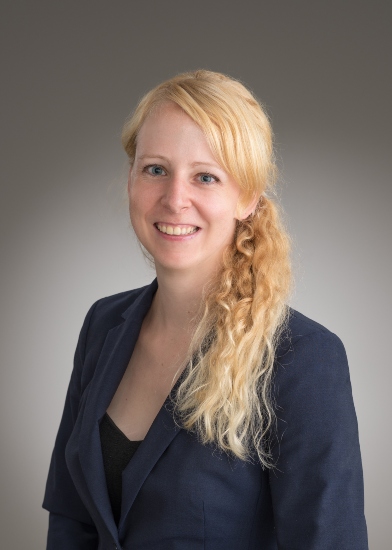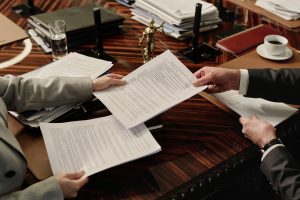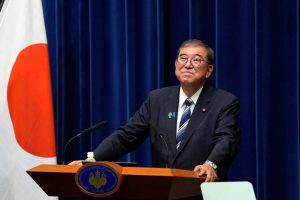What are the filing requirements for patents in Japan?
Since 2016, a Paris route application may be filed either in Japanese or any other language. When a Paris route application is filed in a foreign language, a Japanese translation must be filed within 16 months from the priority date, and mistakes in the translation may be rectified by Amendments (during the patent prosecution procedure) or Corrections (after the grant of a patent).
A Japanese application may be filed with a copy of the specification, drawings, and the following information:
- Priority right date and country;
- Priority application number (if assigned);
- Name and address of inventor(s);
- Name and address of assignee(s).
If the PCT route is chosen, then the PCT application filed in its original language is the basis of the examination. Mistakes in the translation may be rectified under the same conditions as described in connection with the Paris route applications filed in a foreign language. In case of a PCT application, the applicant only needs to provide the application number to its counsel in Japan, as all other information can be obtained from the PCT publication.
What issues do foreign companies run into when trying to file a patent in your jurisdiction?
International companies are often not familiar with the Japanese practice, which makes it important to have a close relationship with the local Japanese counsel so that an optimal prosecution strategy can be developed together. In practice, this is, however, not always easy due to language and communication barriers. It is, therefore, important to choose a counsel willing to communicate openly and frequently, going beyond simply providing basic services in filing and office action reporting but providing holistic support in optimising the Japanese IP strategy.
The following are two examples of aspects of the Japanese patent prosecution system where foreign applicants frequently do not get enough information or support from their local counsel:
- Examiner Interviews
Though examiner interviews (in person, by phone or online) have existed for a long time in the Japanese practice, most counsel are hesitant to include them into their prosecution work. Our experience and statistics have, however, shown that an applicant can substantially reduce the number of issued office actions and increase their overall patent application grant rate by including examiner interviews to their best practice in Japan.
- Appeal against Examiners Decision to Reject and Application
Another good example is the use or non-use of the appeal against the examiner’s decision system.
International applicants are often not aware of how to benefit best from the appeal proceedings in Japan as they are not aware of the high success rate, low cost and short duration of the system.
One surprising aspect of Japanese patent prosecution is that the criteria for patentability seem to be lower if one goes further in the examination. That is, when an application is rejected by the examiner and if one files an appeal to the Board of Appeals, the success rate is 68% (as of 2019). If the Board of Appeals rejects the application, and the case is appealed to the IP High Court, the success rate is still approximately 20- 30%.
These statistics indicate that an applicant still has a chance even if their application is rejected. Approximately 75% of applications rejected by the examiner are granted either by the Board of Appeals or by the IP High Court.
Applicants might also hesitate to file an appeal fearing the cost and long pendency. Neither of this is however justified since the costs for filing an appeal are in between 3,000 – 4,000 USD, including professional and official fees. The average pendency for an appeal is 12.3 months (as of 2019).
What important points must foreign businesses operating in Japan consider when developing or managing their technology development?
- Employee remuneration
In April 2016, an important change to Japanese patent law was made regarding ownership of employee inventions. Under the new law, a company is permitted to establish company rules which rule that all employee inventions are owned by the employer. To benefit from this provision, it is important that companies establish rules on ownership and on remuneration for employee inventions as early as possible because otherwise, the inventor is presumed to own the invention unless the company proves the assignment of the patent.
What further considerations must be made when acting jointly with Japanese corporations?
Crucial and, at the same time, tricky, is to keep smooth communication between the partner corporations. If a strong relationship exists with the Japanese counsel it might be a good idea to include them in the form of interpreters or as cultural bridge builders.
It is also important that the Japanese corporation has updated its employee invention rules as described above and is taking possession of employee inventions to avoid potential problems in regard to ownership of a jointly developed invention.
In the above, what issues can arise if there is a dispute about the ownership of IP between a Japanese corporation and a non-Japanese company?
Problem 1: Which country's law on IP ownership applies?
Problem 2: Which country's rule on picking the right country's law applies?
Nicole Bigler, Director, International Affairs.
SONODA & KOBAYASHI INTELLECTUAL PROPERTY LAW
Shinjuku Mitsui Building, Suite 3401
PO Box 268
2-1-1 Nishi-Shinjuku
Shinjuku-ku, Tokyo 163-0434
Tel: +81-3-5339-1093 Fax: +81-3-5339-1094
mailbox@patents.jp
About the Firm
Sonoda & Kobayashi Intellectual Property Law is a leading Japanese IP firm, which was established in 1998 and is located in central Tokyo. The firm was founded with the specific intention of creating a Japanese IP law firm with a global mindset, to foster stress-free communication and provide exceptional services. Since then, Sonoda & Kobayashi has stayed true to this goal. Unique philosophy and high standards have allowed the firm to exclusively represent leading global and domestic companies in a wide spectrum of enterprises, and to become one of the most trustworthy firms in Asia for the prosecution and enforcement of IP rights.





















